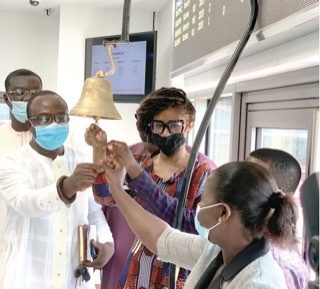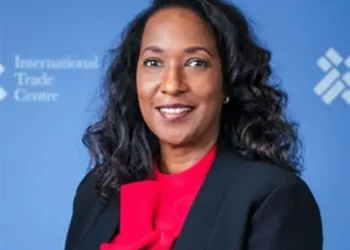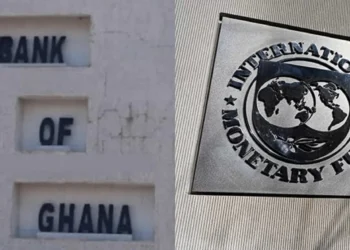The Ghana Commodity Exchange (GCX) has intimated that rice farmers can easily access capital from banks through its Warehouse Receipt Financing Scheme, following the listing of rice as one of the commodities to be traded on the GCX electronic trading platform.
Through the Financing Scheme, rice farmers can leverage their produce to obtain capital from banks at reasonable rates which can then be reinvested into their agribusiness ventures. Also, the trading of rice on its platform would increase marketing opportunities for rice farmers as well as address post-harvest loss issues and their lack of financing, which are key industry concerns.
Mrs Tucci Goka Ivowi, the Chief Executive Officer (CEO) of GCX has revealed that her establishment would support rice farmers to have access to the financial market through its warehouse receipt system adding that GCX has worked with “rice market actors to deliberate on dynamics that occur in trading rice and ensure that all considerations to ensure the most efficient methods for trading rice on the Exchange are taken into account.”
“This will enable farmers to gain access to affordable credit using their commodity as collateral. Rice farmers will also benefit from a modern, efficient trading platform where they can be linked to a larger pool of buyers”.
The Chief Operating Officer of the GCX, Mr Robert Dowuono Owoo commenting said over the years, rice hasincreasingly become the most consumed food staple in Ghana after maize as such it’s a step in the right direction as more farmers who are into rice production will also have access to more accommodative and reliable sources of funding.
Affirming this, the Ministry of Food and Agriculture (MOFA) has also identified rice as an important food crop that should be given special attention for food self-sufficiency in Ghana. The country currently imports about 50% of rice consumed and Government, through Planting for Food and Jobs, plans to support the value chain to satisfy 100% of local demand by 2025.
The Vice-President of the Commodity Brokers Association, Mr Jeffery Nkansah, whined that as brokers, the critical challenge they faced in mobilising grains for export was quality because it’s difficult for them to guarantee constant quality in terms of moisture content and aflatoxins when they were aggregating from smallholder farmers.
“So the introduction of the exchange is a timely intervention to ensure that quality is guaranteed for us from the warehouse. Once we have joined the exchange, we can see our business grow because now we can take on constant orders from our clients without necessarily bothering about quality,” he added.

The President of Ghana Rice Inter-professional Body (GRIB) Nana Adjei Ayeh II also had this to say, “I am wholly confident that this step taken here today to launch rice trading through the Exchange will be of immense value to the Ghanaian rice farmers. We know what trading through GCX guarantees for the farmer in terms of quality, transparency, and most importantly, timely payment.”
Ghana commodity Exchange is a marketplace where buyers and sellers of listed commodities undertake electronic trading under rules. The Exchange aims to standardise rice trading in Ghana with its grading system, to enable buyers and sellers appropriately judge the quality of the produce they trade. These innovations give farmers the chance to further enhance the value of their produce and make it a much more attractive option on both the local and international market.
Established two years ago, the GCX has listed maize, soya bean, sorghum and sesame contracts for trade and have added on rice, bringing the total number of commodities traded to five.




















